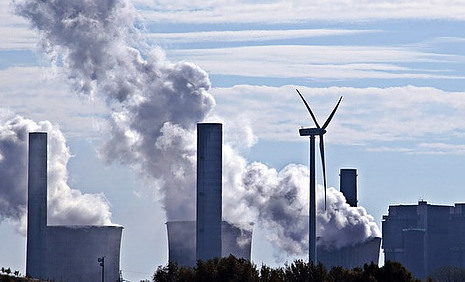
How is air pollution linked to quality of sleep
I feel like every time we look at the news lately, we hear some horrible story about climate change: our oceans, filling with trash; our forests, burning down; and worst of all, our air, filled with pollution.
Poor air quality is one thing we’ll never be able to escape unless we live in the middle of a lush forest like Snow White. For those of us who aren’t living with seven dwarves, however, the air quality can surprisingly affect how we live and sleep. But how is air pollution linked to the quality of sleep?
What is Air Quality?
“So how is air pollution linked to quality of sleep?” I’m glad you asked. To answer that, we first need to understand poor air quality. The Air Quality Index (AQI) is a scale on which we judge the safety of the air by measuring the levels of pollutants in the air. The AQI runs on a scale of 0-500, with 0-50 being safe levels and 300 and higher being extremely hazardous. Even our safe air isn’t totally clean, though. Air can carry small amounts of pollutants without becoming dangerous.
The AQI lists the most common air pollutants as:
- ground-level ozone
- particle pollution (also known as particulate matter, including PM2.5 and PM10)
- carbon monoxide
- sulfur dioxide
- nitrogen dioxide
How does poor air affect our sleep?
Now that we’ve defined air quality, we can discuss how it affects us when we’re asleep. Nicola Davis states in a 2017 article in The Guardian: “Greater exposure to nitrogen dioxide and small particulates known as PM 2.5s are linked with a greater chance of having low sleep efficiency.” This is thought to be because pollutant particles can irritate our sinuses, nose, and throat, causing sleep disruption. It’s also worth noting that different pollution-related factors, such as increased noise from cars and trains, can also disrupt sleep.
Yikes! Even after changing your bedtime routine to improve your sleep, the literal air you breathe could be messing it up for you. So what can you do? We can’t control the air very well everywhere else, but in our bedrooms, we have a tiny bit of control.
This site contains product affiliate links. I may receive a commission if you make a purchase after clicking on one of these links.
What can I do to purify my air?
I suggest getting an air purifier for your room; they usually
don’t take up too much space, and some even look pretty nice! Also
, adding more plants to your household can help absorb some
of the pollution. Some types that can purify the air the most are Spider plants (Chlorophytum comosum), Aloe Vera, and Dracaenas.
Here is my suggestion on for researching air purifiers that have good reviews and that won’t break the bank either:

Here are the some highlights on this product:
- Claims to remove 99% of particles: smoke, dust, viruses, mold, pet dander and pollen
- Using just 60 watts on the highest fan speed is more energy-efficient
- Cleans 540sqft large room in about 12.5 min or up to 2592sqft extra-large space in 60min, on high
- Delivers high performance with automated one-button control in a lightweight, compact package
- Low noise at 56 dB at its highest speed
- Swedish design
It’s so important to be aware of the effects of air pollution on your sleep quality. Taking one step could improve your sleep pattern and transform how you feel!
Please comment below if air pollution is affecting your health and possibly quality of sleep.
Now, breathe easy, and sweet dreams!

